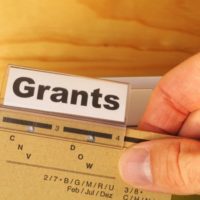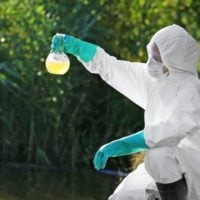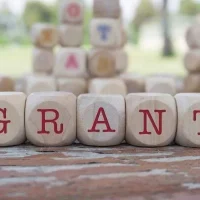Deadline: 06-Oct-21
Proposals are now open for the Socio-Economic Empowerment of the Users of the Sea.
Scope
- The multi- and trans-disciplinary proposals should undertake a thorough analysis of gaps in ocean literacy, marine environment connectedness like monetary and non-monetary values of the marine environment, socio-economic vulnerability and resilience (including gender-related) and preparedness for the social transition of coastal communities and stakeholders in order to advance understanding of the preconditions and success factors for social transition and nature-based social innovation.
- Proposals should deal with environmental and socio-economic challenges related to coastal climate adaptation and mitigation, coastal pollution, coastal ecology, coastal habitability and entrepreneurship, blue spaces and well-being, coastal (eco) tourism and cultural events, coastal food and energy production and consumption among others.
- Proposals should identify opportunities based on coastal ecosystem services and active engagement and participation of the users of the sea in designing, implementing and maintaining nature-based solutions (including monitoring activities on the performance and impacts of the solutions), taking into account cultural heritage aspects where relevant.
- SSH approaches should serve through a multi-actor approach to orient and contextualise coastal STEAM (science, technology, engineering, arts and mathematics) activities related to the above-mentioned challenges in terms of social and economic impact as well as in terms of the deep impact of human behaviour, culture (including indigenous knowledge and practices) and history (including religion literacy) on all societal innovation and integrated sustainable coastal zone development and management.
Funding Information
Grant amount is equal to or greater than EUR 500 000 except for:
- public bodies (entities established as a public body under national law, including local, regional or national authorities) or international organisations; and
- cases where the individual requested grant amount is not more than EUR 60 000 (lowvalue grant).
Expected Outcomes
Project results are expected to contribute to all the following expected outcomes:
- Better understanding of the environmental, socio-economic, behavioural, cultural and demographic drivers of change for users of the sea in coastal areas is taken into account by the policy making community.
- Better understanding of the nature connectedness of coastal communities and preconditions, hurdles and success factors for social transition and nature-based social innovation inspired the policy making community to take measures.
- Socio-economic resilience and well-being of coastal communities (including gender related) are measured, understood and enhanced through a properly developed and established link with coastal ecosystem services and cultural heritage.
- Empowerment of coastal communities and sectors to innovate for the ecological transition and feel part of it, through a multi-actor approach.
- Design of transition mechanisms and identification of the means to make necessary changes socially acceptable, that among others may include curiosity-driven citizen science initiatives and outcomes connected to specific societal and blue bioeconomy-related socio-economic challenges on coastal climate adaptation and mitigation, coastal pollution, coastal biodiversity, circularity and sustainability or other aspects of coastal (eco)tourism and cultural events etc.
- Creation of a well-connected community, involving companies, local businesses, social innovators, private investors, researchers, citizens and policy makers, which will bring together on the one hand research actions and results and on the other implementation actions, new initiatives, and policy developments for their own companies or local communities.
- Improved skills in ocean literacy education and awareness raising, social sciences, green skills and digital transformation to process and integrate large network input of gradually more ‘Green and Blue Literate’ citizens that are more engaged to take direct and sustainable action.
- Contributions to Maritime Spatial Planning and Integrated Maritime Policy, including the Water Framework Directive and the Marine Strategy Framework Directive.
- Contribute to the UN SDG 1, SDG 2, SDG 3, SDG 5, SDG 10, SDG 11 and with a specific emphasis on UN SDG 14.
Eligibility Criteria
- Any legal entity, regardless of its place of establishment, including legal entities from non-associated third countries or international organisations (including international European research organisations) is eligible to participate (whether it is eligible for funding or not), provided that the conditions laid down in the Horizon Europe Regulation have been met, along with any other conditions laid down in the specific call topic.
- A ‘legal entity’ means any natural or legal person created and recognised as such under national law, EU law or international law, which has legal personality and which may, acting in its own name, exercise rights and be subject to obligations, or an entity without legal personality.
- To be eligible for funding, applicants must be established in one of the eligible countries, i.e:
- the Member States of the European Union, including their outermost regions;
- the Overseas Countries and Territories (OCTs) linked to the Member States;
- eligible non-EU countries:
- countries associated to Horizon Europe
- low- and middle-income countries
For more information, visit https://bit.ly/3xk34LO






![Call for Applications: “Voices in Motion” Program [Sri Lanka] - fundsforNGOs Call for Applications: “Voices in Motion” Program [Sri Lanka]](https://www2.fundsforngos.org/wp-content/uploads/2023/04/dance-200x200.jpg)


































